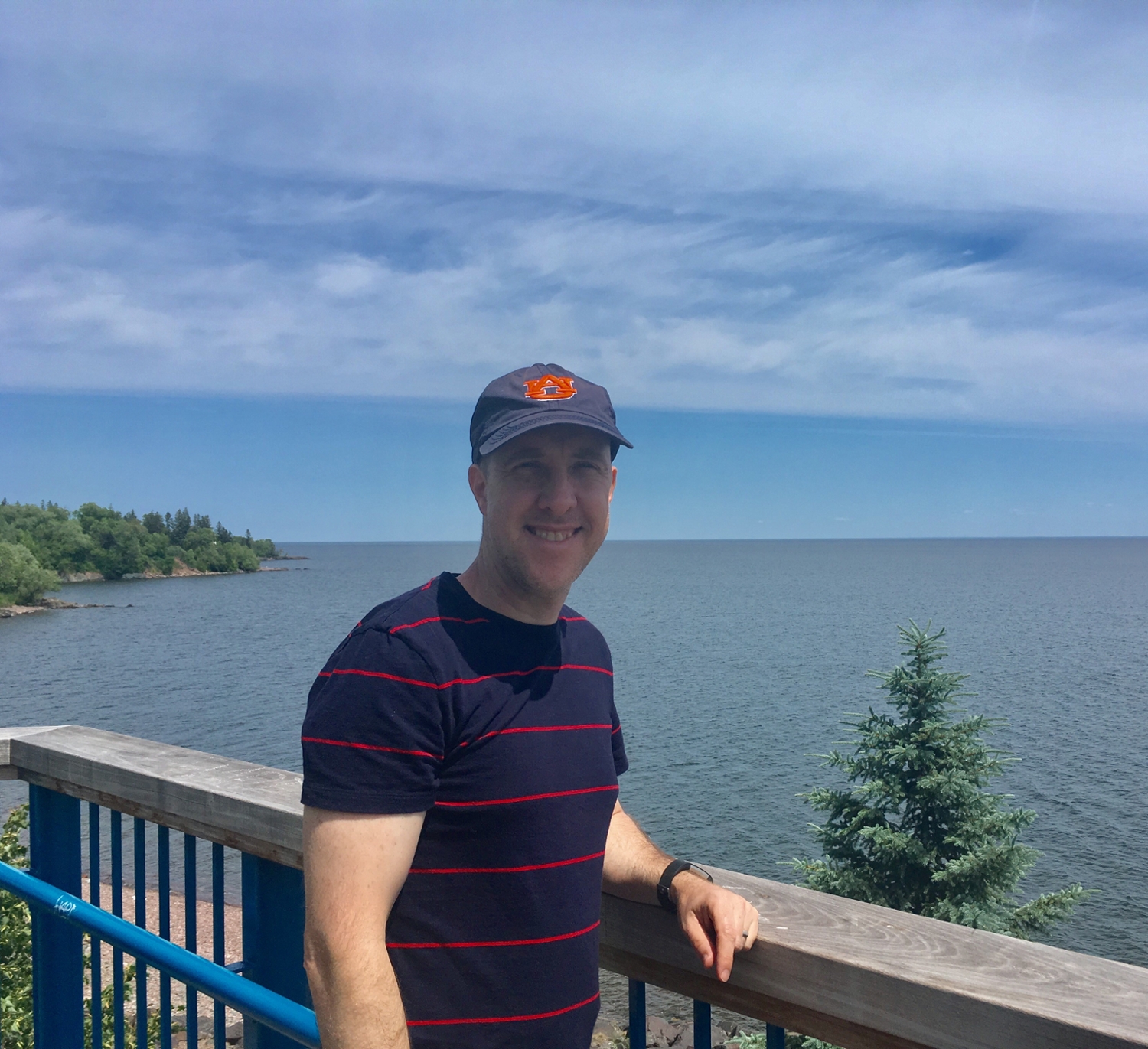COSAM News Articles 2020 June Physics Alumnus Embodies Patience, Perseverance, and Tenacity through Career Researching Biophysics and Teaching as an Assistant Professor at Loyola University Chicago
Physics Alumnus Embodies Patience, Perseverance, and Tenacity through Career Researching Biophysics and Teaching as an Assistant Professor at Loyola University Chicago
“Physics has always been a quantitative field, and as the world becomes increasingly data driven, the training that physicists receive positions them to make contributions in an endless amount of fields,” explained Brian Cannon, who earned his bachelor’s degree from Auburn University in physics in 1997.
Cannon, who was born in Redondo Beach, California, grew up in Center Point, Alabama, a suburb of Birmingham, always wanted to be involved in science.
“My family would go to the Marshall Space Flight Center in Huntsville just about every summer, and I was fascinated by the rockets and the tools for space exploration,” he said.
As a child, Cannon’s parents sparked his interest with computer programming and he even began writing his own computer games.
He began to develop a passion for physics.
“The range of physics spans from the smallest particles to the expansion of the universe. In addition to basic understanding of nature, its countless discoveries have profound societal benefits, including MRIs for medicine and CCDs for cameras,” Cannon added.
Cannon recalls his favorite professor and favorite course while at Auburn University.
“My favorite professor was Dr. Peter Barnes in the Department of Physics,” Cannon said. “He taught a course every quarter of my senior year: Thermodynamics, Solid State, and Optics. It was during these classes in which the physics ‘light bulb’ really switched on. My favorite course was Computational Methods in Physics with Dr. Yu Lin.”
At Loyola University Chicago, Cannon is an associate professor in the Department of Physics where he teaches college-level physics courses and corresponding labs.
“I enjoy helping students reach their potential and realize what they can do,” Cannon shared. “I incorporate material based on the career interests and show how physics connects with it. Students really enjoy the discussions about current research in physics.”
During his last quarter at Auburn, a visiting speaker in a seminar held by the Department of Physics presented research on biophysics, which was new and fascinating to Cannon.
“Dr. Barnes gave me some great advice just before graduation that in science, it can be beneficial to join fields that are in their nascent stage, like biophysics. That summer, I headed off to graduate school at Texas Tech to study semiconductor physics. It turned out that Texas Tech had a good biophysics program, and I switched soon after starting there,” he explained.
Cannon received a 2019 National Science Foundation (NSF) CAREER Award. The focus of his research is single-molecule biophysics.
“Although our genetic information is stored by DNA in a double-helical form, DNA can also fold into a variety of structures,” he said. “The propensity of DNA to form these other structures can have biological consequences. We use single-molecule microscopy to image the formation of these structures by individual strands of DNA molecules in real time. This helps to understand the connection between sequence and topology within the genome in regards to genetic disorders.”
Research for his NSF CAREER Award explores how defects impact genetic diseases.
“In addition to the sequence of the genome, its three-dimensional arrangement has an integral role in genetic activity,” he shared. “Highly repetitive DNA sequences that can form aberrant structures have been linked to genetic diseases, such as fragile x syndrome and spinocerebellar ataxias. The project seeks to understand how these sequence defects influence the organization of DNA, and thus how these defects might lead to the deleterious protein expression patterns associated with some genetic diseases. The educational component addresses the need to enhance the core scientific competencies of undergraduate science majors. The project will develop a research-oriented curriculum for the introductory physics lab sequence at Loyola and initiate a research outreach program with Chicago-area community colleges.”
Cannon’s shared advice to students who want to pursue a career in academia like him.
“It’s a journey,” he said. “There are some important things that really help. Find a research field that has value and captivates your interest because your early career will be largely defined by your research. You need to get teaching experience as a lecturer in graduate school and as a postdoc, even if your advisor wants you to spend all of your time on research. You have to take ownership of your career and embrace trying new things, be it new teaching methods or a new research area, because these can create opportunities that open doors.”
As Cannon reflects on his career path, he thinks of his graduate advisor at Texas Tech, Kelvin Cheng, and his postdoc advisor at The University of Texas, Rick Russell.
“They were both highly supportive and gave me room to explore,” he added “In addition to imparting the skills to become a professional scientist, they both modeled traits that are required to be successful: patience, perseverance, and tenacity.”
As Cannon continues to make an impact in the field of science, he embodies these traits of his mentors and embraces that he can make a difference through not just his research, but teaching all of his students to reach their potential.
Latest Headlines
-
07/09/2024
-
Summer Bridge Program celebrates 21 incoming Auburn students as they prepare for future STEM careers07/02/2024
-
07/02/2024
-
06/17/2024
-
06/07/2024

